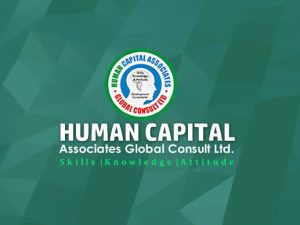Workshop on Anti-Corruption, Integrity, Ethics and Corporate Governance Course For Senior and Middle Level Executives
March 25 – 29, 2024, 1st Run: Lagos & Abuja
October 7 – 11, 2024, 2nd Run: Lagos & Port Harcourt
For Tutor -Led Class: 9am – 4:30pm
Workshop fee: N250, 000 per Participant
For online: Delivery via Zoom
Online course fee: N200, 000 per Participant
Available for In-plant Training
Program Overview:
Corruption is one of the root causes of extreme poverty, conflict and State fragility. It cripples States’ ability to effectively deliver services and maintain the rule of law; it has strong adverse effects on the business climate and stands in the way of sustainable and equitable economic and social development. This course helps participants understand the drivers of corruption, strengthen their analytical skills and provide them with instruments to develop integrity and anti-corruption policies and programs in their organizations.
For Whom:
This program is designed for senior, middle level executives of multinational organizations, business organizations, Ministries, Agencies, Departments, NGOs and those who are involved in anti-corruption, transparency and accountability processes in relation to development and good governance working for government, local and international organizations.
Learning objectives:
At the end of the program, participants will be able to:
- analyze the impact of corruption on public value systems and service delivery in the public-sector organizations;
- identify the key challenges in promoting and administering ethics and integrity within the public-sector organizations;
- identify corruption and unethical practices in the public sector in time and address them immediately to put a check on such practices;
- acquire skills to identify unethical behaviour that will impact on the delivery of high-quality public services;
- identify different tools and techniques that can be adapted to control and eradicate the slightest scope of internal (among employees) and external (external political pressure or the public) corruption;
- create awareness for code of conduct for themselves and set examples for their subordinates;
- describe the ethical frameworks applicable to the delivery of services; and
- acquire skills and knowledge to frame anti-corruption policies and procedures to eliminate unethical practices in their organizations’ service delivery as they return to work.
Course outline:
Day 1: Understanding the Challenges of Corruption Prevention and Integrity Assurance: An Overview
- Magnitude and cost of corruption: How big is the problem?
- Definition and forms of corrupt behavior
- Definition of corruption.
- Main forms and types of corrupt behavior and misconduct.
- Potential grey areas and FAQs.
- Anti-Corruption Compliance frameworks
- External anti-corruption framework / legislation
- Conflicts of interest
- Identifying and managing conflicts of interest.
- Politicization and Work Place Culture
Day 2: Consequences of Unethical Conduct and Corruption
- Minimum development of people and low economic development of the nation
- Anarchy in society
- Lack of investor confidence, resulting in lack of economic growth
- Deterioration of citizens’ trust
- Low state revenue, higher state expenditures
- Challenges to Ethical Management
- Corruption and unethical behaviour at the senior level
- Lack of budgets for ethics-related training
- Low wages that encourage corruption among public sector professionals
- Lack of skill to frame policies, set standards and train employees on ethics
- High involvement and authority to
political leaders influencing value-driven decisions and operations
Day 3: Ethical Models in the Public and Private Sectors
- Accountability of public sector professionals towards citizens
- Integrity in operations
- Ethical and professional code of conduct and behaviour
- Law enforcement in a professional and unbiased manner
- Transparency and timely communication with citizens
- Features of Ethical Management
- Determining and defining values
- Guiding towards these values
- Monitoring these values
- Enforcing these values
Day 4: Managing Ethics and Corruption in Public Sector
Organizations
- Institutionalizing Codes of ethics/conduct in the organization
- Ethical committees
- Ethical audits
- Ethical policies and procedures
- Ethical training and discussions by ethical counselors
- Ethical hotlines
- institutionalized Internal Control Systems
- Strong Organizational Corporate Governance
Day 5: Challenges to Ethical Management and Corruption in
Public Sector Organizations
- Corruption and unethical behaviour at the senior level
- Lack of budgets for ethics-related training
- Low wages that encourage corruption among public sector professionals
- Lack of skill to frame policies, set standards and train employees on ethics
- High involvement and authority to political leaders influencing value-driven decisions and operations
- Success Factors of an Ethical and a Corruption-Free Work Culture
- Senior management and employee training on ethical conduct and behaviour
- Strong performance management systems for transparent and unbiased performance assessment
- Career progression system based solely on merit
- Well-framed, fair HR policies
- Legal adoption of the code of conduct in the organisation
- Exemplary leadership
- Corruption myths and why anti-corruption efforts fail
Training Methodology
Lectures, discussions, exercises, case studies, audio-visual aids will be used to reinforce these teaching/learning methods.
Related Courses




